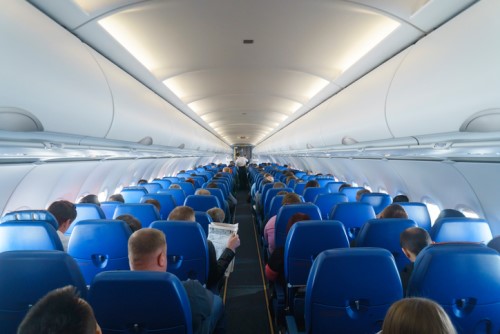

After a long four-year wait, the 2018 FIFA World Cup has finally arrived. Soccer enthusiasts around the world will be glued to their TVs for the next month, and some lucky fans will be on their way to Russia to soak up the live World Cup atmosphere.
Neither the US nor Canadian soccer teams made the cut for this year’s feast of football juggernauts, but that won’t stop some making the long journey east to attend the tournament. In fact, in Generali Global Assistance’s newly released Annual Summer Travel Survey Report, nearly one fifth of US respondents showed interest in flying to Russia.
International travel comes with its own set of unique exposures. Travelers should journey with the mindset of always expecting the unexpected, as anything from delays, severe weather, illness, injury or even political and civil unrest could thwart those dream travel plans.
Generali Global Assistance has listed five key things for travelers to consider before they head to Russia for the World Cup or on a similar dream trip abroad: trip cancellation, sickness or injury before or during a trip, adverse weather and natural disasters, travel delays or interruptions, and lost stolen or delayed baggage.
The next step: travel insurance. According to the Generali Global Assistance Annual Summer Travel Survey Report, the majority of respondents planning to make a trip this summer understand the value of travel insurance, but they don’t necessarily understand how to meet their complex coverage needs.
Chris Carnicelli, CEO of Generali Global Assistance, commented: “Americans that plan to travel this summer indicated they’re usually covered by insurance for health-related issues for themselves or their family (70%), a vehicle breakdown (71%), a transportation accident (67%), and the loss of personal belongings, like luggage (57%).
“Interestingly, Europeans are far more likely to purchase travel insurance directly from a travel insurance provider at 48% versus Americans at 22%. Most Americans indicate they get travel insurance through their credit card company at 36%. Americans should make sure they do their research on the benefits they’re receiving when they buy travel insurance as the policy received through their credit card may not be encompassing enough of their needs.”
All travel insurance plans are different, so consumers are advised to read them carefully before purchase. Travel medical is a key coverage, especially for international travel, because many health insurance plans exclude sickness or injury that occurs during foreign excursions. Furthermore, those spending the big bucks on the dream trip to Russia might want to consider trip cancellation coverage, which protects against those unpredictable scenarios like sickness and adverse weather even before the trip begins.
“If travelers are wondering if they need coverage or not, my advice would be to go to their brokers or visit educational websites like ours to understand exactly what’s covered in a travel insurance policy, what’s excluded, and whether they need the benefits of the policy,” Carnicelli added.
